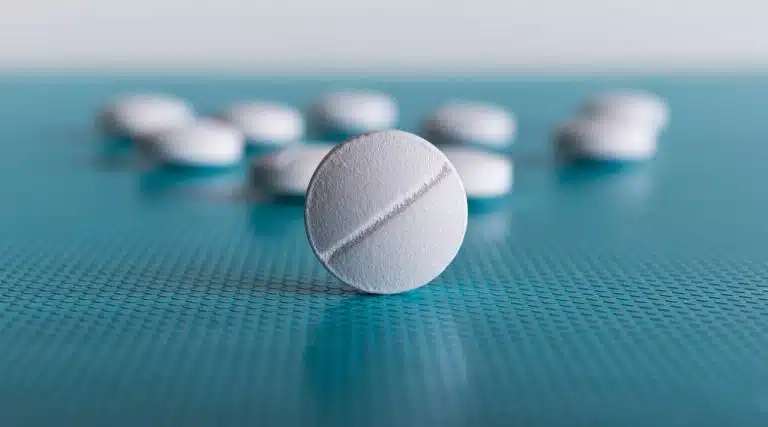Klonopin (Clonazepam) Drug Classification | Benzo Or Narcotic?
- Is Klonopin A Benzo?
- Is Klonopin A Narcotic?
- Drug Interactions
- Is Klonopin A Controlled Substance?
- Klonopin Addiction

Klonopin, the brand name for clonazepam, is classified as a benzodiazepine (benzo) and a Schedule IV controlled substance. Although it is most commonly used to treat a variety of anxiety and panic disorders, it is also an effective anticonvulsant.
Klonopin should only be used as a short-term treatment because of its risk of dependence and abuse. A common misconception is that all drugs with a potential for abuse and addiction are considered narcotics.
However, narcotics only include natural opioid pain medications, such as Oxycontin and Vicodin.
Is Klonopin A Benzo?
Clonazepam is a benzodiazepine, which is a class of medications that enhance the neurotransmitter gamma-aminobutyric acid (GABA) in the central nervous system. Enhancing GABA causes brain activity to slow down, which can cause calmness, relaxation, and euphoria.
Benzos are effective in treating panic attacks, anxiety disorders (such as agoraphobia), seizure disorders, insomnia, and alcohol withdrawal.
Along with clonazepam, commonly prescribed benzodiazepines include:
- Valium (diazepam)
- Xanax (alprazolam)
- Ativan (lorazepam)
Effects Of Klonopin
Clonazepam can cause side effects even when you take your medication as prescribed. It takes about 3-4 hours to reach peak concentration levels in your system. After a few hours, any side effects you feel should start to diminish.
Common side effects of Klonopin include:
- lightheadedness
- confusion
- memory problems
- coordination problems
- fatigue
- drowsiness
Is Clonazepam A Narcotic?
Although clonazepam shares some similar effects to opioids because they are both CNS depressants, it is not a narcotic. Narcotics only refer to opioid medications, including natural, synthetic, and semi-synthetic substitutes.
Some narcotics include:
- oxycodone
- hydrocodone
- morphine
- heroin
- fentanyl
According to the U.S. Food and Drug Administration (FDA), opioids and benzos should never be taken together because the drug interaction can result in a fatal overdose. Opioids and benzos both cause sedation and respiratory depression, which is enhanced when they are taken together.
Along with opioids, other CNS depressants such as alcohol, illicit drugs, and hypnotic sleep-aids can also result in a life-threatening overdose when combined with Klonopin.
Signs of a Klonopin overdose include:
- excessive sleepiness
- confusion
- coma
- slow reflexes
- respiratory depression (difficulty breathing)
Is Klonopin A Controlled Substance?
The United States passed a law in 1971 called the Controlled Substances Act (CSA). According to the CSA, all regulated drugs are placed into one of five schedules based on medical use, abuse potential, and risk of dependence or addiction.
Klonopin and other benzos are classified as Schedule IV controlled substances with a low risk of abuse and dependence.
Klonopin Dependence & Addiction
Although benzos are classified as less addictive than narcotics, they are still commonly abused. Abusing your prescription can lead to physical dependence, which can result in withdrawal symptoms if you stop or lower your dose too quickly.
Klonopin withdrawal can be dangerous and tapering under your doctor’s supervision can help prevent severe symptoms. Tapering involves slowly lowering your dose, giving your body time to adjust to each new dose.
Long-term abuse of Klonopin can lead to addiction, also known as substance use disorder. When you’re addicted to a drug, you cannot stop taking it on your own and you cannot control how much you take.
Addiction to Klonopin often involves other substances and should be addressed with detox and long-term treatment programs.
Klonopin Addiction Treatment
Having a treatment plan that includes aftercare can improve your quality of life and help you sustain long-term recovery.
Inpatient detox is recommended to treat withdrawal symptoms because they can become life-threatening. Residential and outpatient facilities help treat the mental health effects of substance use disorders.
If you are looking for information about addiction treatment, please contact Ark Behavioral Health to speak with one of our specialists.
Written by Ark Behavioral Health Editorial Team
©2024 Ark National Holdings, LLC. | All Rights Reserved.
This page does not provide medical advice.
DailyMed - KLONOPIN- clonazepam tablet
Drug Enforcement Administration (DEA) - Narcotics (Opioids)
Drug Enforcement Administration (DEA) - Drug Scheduling
U.S Food and Drug Administration - FDA requiring Boxed Warning updated to improve safe use of benzodiazepine drug class


Questions About Treatment?
Ark Behavioral Health offers 100% confidential substance abuse assessment and treatment placement tailored to your individual needs. Achieve long-term recovery.
100% confidential. We respect your privacy.
Prefer Texting?
Our friendly support team is here to chat 24/7. Opt out any time.







 Learn More
Learn More








